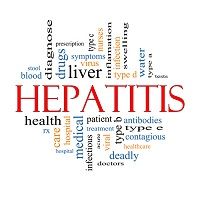Article
How One Medicaid MCO Manages HIV/HCV Drug Prescriptions
Author(s):
People living with HIV/AIDS may have trouble getting authorization for HCV direct acting antivirals. Amida Care in NYC, a Medicai MCO came up with a plan.

About 3.2 million people have chronic HCV infection in the US and about 30% to 40% of those living with HIV/AIDS have co-infections with HCV.
New direct acting antivirals can cure HCV, but they are costly.
But their price is a "significant challenge" for many Medicaid programs, researchers from Amida Care in NY, NY reported at the 20th Annual United States Conference on AIDS in Hollywood, FL.
Amida Care is a community sponsored non profit Medicaid special needs plan that provides care to patients througout NYC. It has 6,000 cients who are HIV positive.
To control costs while preserving access to these HCV drugs, Amida Care uses its own in-house prior authorization system to make sure patients are prescribed the drugs appropriately.
Each new case is received by an HCV clinical specialists who makes sure the patient has tests for HIV viral load, HCV viral load and genotype, treatment history, renal function and fibrosis test.
Undetectable HIV viral load is a prerequisite for being cleared for HCV drugs. Not having a low viral load is a common reason requests for HCV drugs for these patients get refused.
Under the Amida system, if the HIV viral load is unsuppressed, the patient gets HIV treatment until it goes down.
The program got results. In 2015 there were 450 prior authorization requests for DAAs, and only 40 were denied, some for incomplete data, some for unsuppressed HIV viral load, others because patients needed different drug regimens.
Screening the patients to see if they were appropriate candidates for DAA was successful, AMIDA concluded.
"Denial reasons supported clinical appropriateness, member readiness as well as cost-effective therapeutic alternatives.




